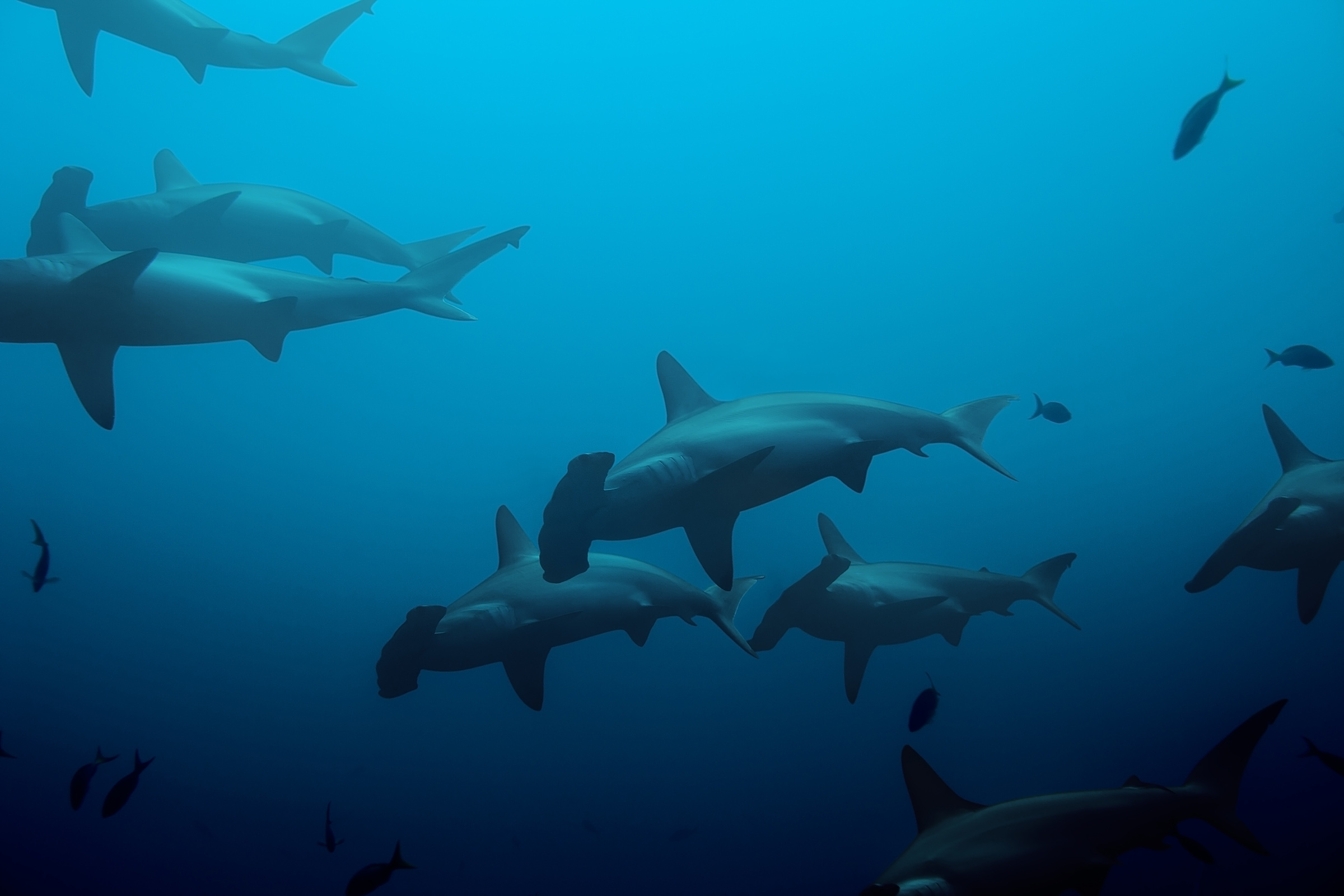Hammerhead sharks are intriguing creatures, and when they begin some of their deepest dives, they take a deep breath and close their gills. At least, that’s what new research seems to suggest. The study published in the journal Science details how hammerhead sharks stay warm in cooler water, which is often encountered in the depths of the ocean.
The closing of their gill slits and their mouths when diving deeper means that they keep more heat from slipping out of their bodies. This helps maintain their internal temperatures, making it easy to traverse cooler water easy.
It definitely seems strange to think of an ocean-dwelling animal like a shark holding its breath when it dives. After all, sharks don’t breathe air like mammals do. Instead, their gills pull important oxygen from the water. As such, the scientists say they didn’t expect sharks like the hammerhead to exhibit similar behavior when diving deep. But it makes sense that hammerheads would hold their breath to stay warm.

Many species of hammerheads, like the scalloped hammerhead, rely on the temperature of the water around them to regulate their body temperature. As such, any warmth they want to hold onto in cooler waters must be preserved in their bodies as much as possible.
That’s why it makes sense that they close off any possible ways for that heat to escape. The hammerheads stay warm by holding their breath because heat can’t seep out of their gill slits or through their mouth.
The research involved here is intriguing, and helps us learn more about the animals that inhabit our oceans. As scientists continue tracking these animals, we’ll likely learn more about their behaviors. It’s also possible they’ll discover more terrifying and bizarre creatures at the bottom of the ocean, too, as our oceans are still criminally unexplored.








